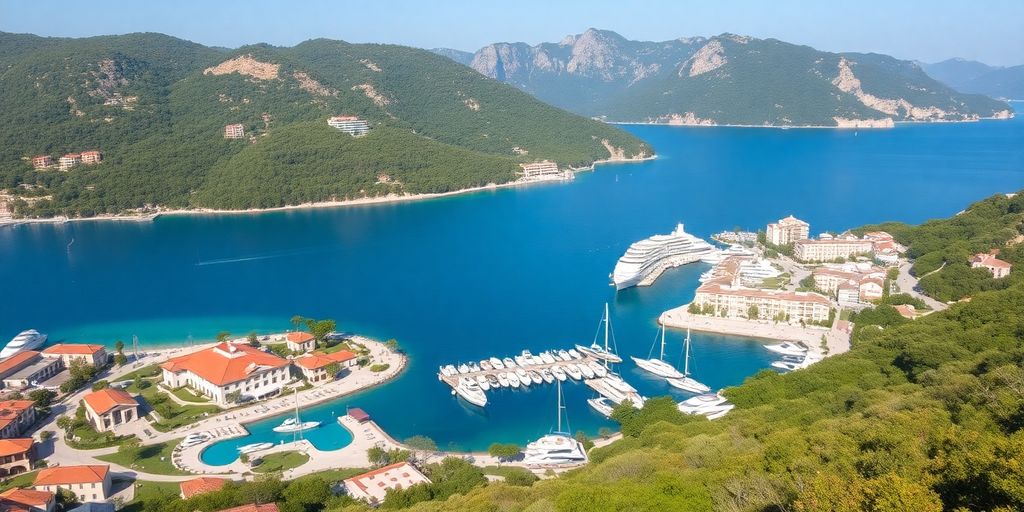Montenegro’s recent agreement with the United Arab Emirates (UAE) has sparked significant debate about foreign investment and its implications for local communities and the European Union’s influence in the region. Signed by Prime Minister Milojko Spajić, the deal promises substantial investment in tourism and real estate but has faced backlash over transparency and environmental concerns.
Key Takeaways
- Montenegro signed a €30–35 billion deal with the UAE for tourism and infrastructure development.
- The agreement has faced public scrutiny and protests over its lack of transparency and potential environmental impacts.
- The EU has an opportunity to engage more actively in Montenegro’s development process.
The Agreement and Its Implications
In March 2025, Montenegro’s Prime Minister Milojko Spajić announced a landmark agreement with the UAE, aiming to transform the Velika Plaža area in Ulcinj into a luxury resort. The deal was initially celebrated, with the Burj Khalifa illuminated in the colors of the Montenegrin flag, symbolizing a new era of investment.
However, the deal quickly unraveled as details emerged, leading to public protests. Citizens expressed concerns not only about the concentration of power in the hands of a few investors but also about the environmental degradation that could result from such large-scale development.
Public Backlash and Civic Engagement
The protests in Montenegro were not merely reactions to foreign investment; they represented a growing civic maturity and a demand for democratic accountability. Citizens mobilized against a model of development that sidelined public interest and lacked transparency. This backlash highlights the need for a more inclusive approach to economic development that prioritizes community engagement and environmental sustainability.
The EU’s Missed Opportunity
Despite the public outcry, the EU has been slow to respond. The European Commission’s approach to enlargement and its relationship with candidate countries like Montenegro requires a significant overhaul. The EU could have seized the moment to support local voices and offer alternatives that align with democratic values and environmental protection.
Environmental and Cultural Concerns
The Velika Plaža coastline is not just a prime location for development; it is also an ecological treasure. The area is home to diverse wildlife and serves as a vital cultural space for the local Albanian community. The proposed luxury resort threatens not only local livelihoods but also the region’s biodiversity, which is crucial for Montenegro’s commitments to the EU.
A Call for Strategic Autonomy
Montenegro’s situation serves as a reminder that strategic autonomy is not about accepting the highest bidder but about fostering legitimacy and resilience from the ground up. The EU has the chance to demonstrate what meaningful membership looks like by supporting sustainable development initiatives in Ulcinj.
Conclusion
As Montenegro’s parliament prepares for a final vote on the agreement, the EU must act swiftly and decisively. By engaging with local communities and promoting sustainable development, the EU can reclaim its influence in the region and ensure that the future is built on democratic principles rather than opaque deals with foreign investors. The time for action is now, before the EU’s role in its own neighborhood is diminished further.
Sources
- Montenegro’s Gulf Deal: A Strategic Lesson for the EU, Carnegie Endowment for International Peace.






